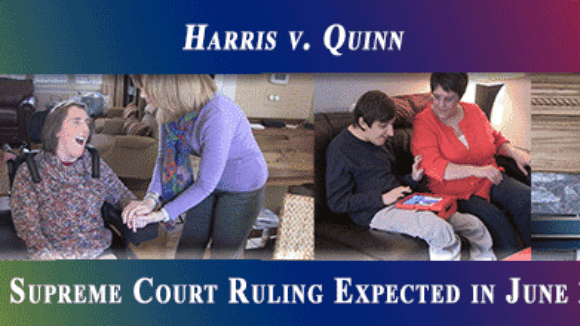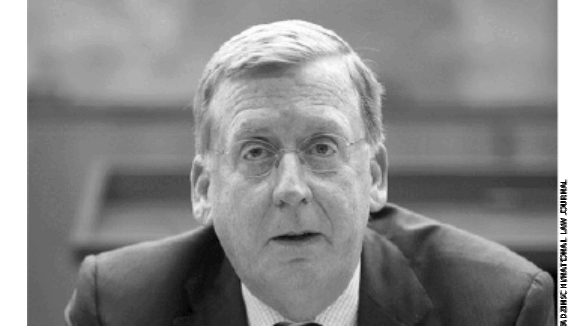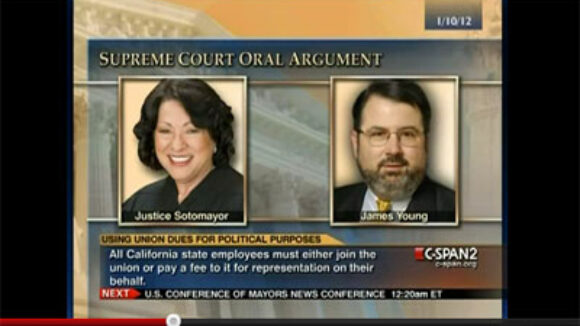Victory -- Supreme Court Ends Union Scheme
Read the U.S. Supreme Court Harris v. Quinn Opinion by clicking here. From the National Right to Work Legal Defense Foundation report about its Harris v. Quinn Supreme Court victory today:…

Read the U.S. Supreme Court Harris v. Quinn Opinion by clicking here. From the National Right to Work Legal Defense Foundation report about its Harris v. Quinn Supreme Court victory today:…

Big Labor Lawyer Admits the Truth During Supreme Court Hearing (Click to download the March 2014 Newsletter) As regular readers of this Newsletter know, in the 24 Right to Work states, employees who refuse…

National Right To Work Legal Defense Foundation attorneys lead by W. James Young fought to stop SEIU abuses of Dianne Knox and her fellow employees right not to be compelled to "subsidize a [SEIU] political effort designed to restrict their own rights." The U.S. Supreme Court 7-2 Opinion written by Justice Alito sets back another Big Labor easy political money scheme right before the 2012 elections. This decision should lead to new challenges to Big Labor's compulsory actions in the future. Two of the Justices, Breyer and Kagan, who opposed the right of individuals to voluntarily spend their own money on politics in the Citizen United case, both supported the notation that unions could compel people to unwillingly support politics that they oppose. From the Opinion: .... When a State establishes an “agency shop” that ex- acts compulsory union fees as a condition of public employment, “[t]he dissenting employee is forced to support financially an organization with whose principles and demands he may disagree.” Ellis, 466 U. S., at 455. Because a public-sector union takes many positions during collective bargaining that have powerful political and civic consequences, see Tr. of Oral Arg. 48–49, the compulsory fees constitute a form of compelled speech and association that imposes a “significant impingement on First Amendment rights.”

National Right To Work Legal Defense Foundation attorneys lead by W. James Young fought to stop SEIU abuses of Dianne Knox and her fellow employees right not to be compelled to "subsidize a [SEIU] political effort designed to restrict their own rights." The U.S. Supreme Court 7-2 Opinion written by Justice Alito sets back another Big Labor easy political money scheme right before the 2012 elections. This decision should lead to new challenges to Big Labor's compulsory actions in the future. Two of the Justices, Breyer and Kagan, who opposed the right of individuals to voluntarily spend their own money on politics in the Citizen United case, both supported the notation that unions could compel people to unwillingly support politics that they oppose. From the Opinion: .... When a State establishes an “agency shop” that ex- acts compulsory union fees as a condition of public employment, “[t]he dissenting employee is forced to support financially an organization with whose principles and demands he may disagree.” Ellis, 466 U. S., at 455. Because a public-sector union takes many positions during collective bargaining that have powerful political and civic consequences, see Tr. of Oral Arg. 48–49, the compulsory fees constitute a form of compelled speech and association that imposes a “significant impingement on First Amendment rights.”

From BigGovernment.com: In Knox v SEIU, the illogic of requiring non-union members to provide interest-free loans for Big Labor political activities comes under the Supreme Court’s scrutiny. In this…